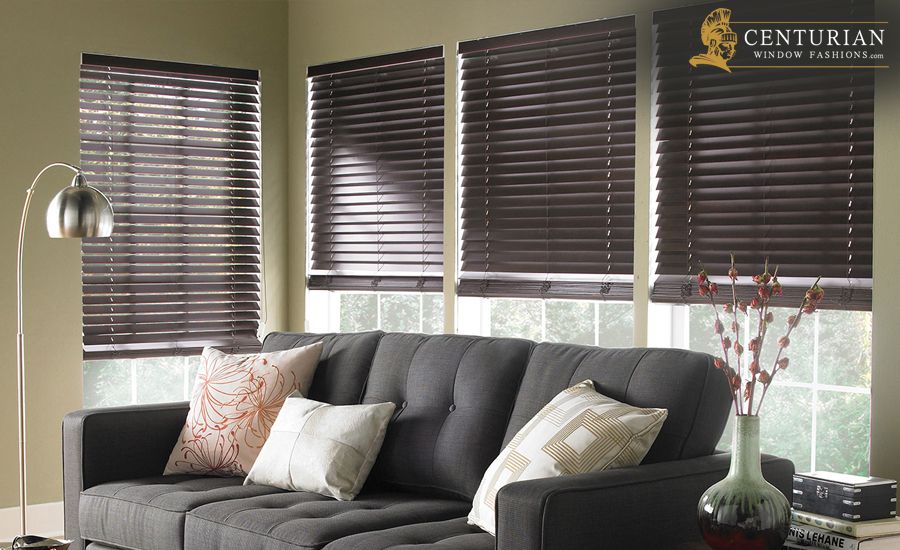The right choice of window treatment can alter the ambience and overall look of your home. Blinds are the perfect choice if you want absolute control on the amount of light and shade that permeates into a room. Available in different materials, your choice should be based on the purpose for which you are installing them.

One of the most popular choices is faux wood as it has a number of benefits associated with it. Considering the benefits and the drawbacks, you can determine whether this is going to be the best choice for your home.
Benefits:
-
Moisture Resistance
Compared to natural wood, faux wood blinds are more moisture resistant making them last longer in places with high moisture like the kitchen, laundry room and bathrooms. This is because they are made from PVC or Poly-vinyl Chloride. They are durable and not as prone to scratching and damage as natural wood. They also do not fade or become brittle from constant exposure to the sun like natural wood though then start yellowing over the years as they age.
-
Affordability
Synthetic material like PVC is much cheaper than real wood. The price difference, however, does not affect their performance. They can deliver the same aesthetic appeal to your home just like natural wood. Though the shade choice is limited compared to natural wood, these blinds can match the interiors of almost any household. Since they are value for money, you can dress more windows around the house without stretching your budget too far.
-
Easy Maintenance
Vinyl is easier to clean than wood as you can use soapy water and other similar solutions without damaging the material due to moisture. Unlike wood, they won’t rot or warp over time. Periodic dusting will ensure that it looks as clean as new. Using specific rinsing solutions or light pH-balanced liquid soap and water can ensure the blinds last you for years to come. You can clean them as much as needed as they are not prone to damage from moisture or scratching.
-
Durability
Materials like vinyl are much more durable compared to natural wood and can last for years if they are maintained well. They are also pet-friendly as wood is more prone to breakage as pets cavort around the house. PVC is a type of thermoplastic and it is constructed to be fire resistant as well which is an additional advantage of such blinds.
Drawbacks:
-
Appearance
The obvious drawback is the appearance as even the best quality faux wood blinds cannot completely mimic the sophistication of natural wood.
-
Pliability
Moreover, PVC tends to soften up and become pliable from exposure to high temperatures and hence such blinds cannot be used in areas where the temperature consistently stays around and above 55 degrees Celsius for months.
-
Irreformability
Lastly, they cannot be re-stained and have to be entirely replaced when damaged. You cannot have them repaired.
When you understand the characteristics of faux wood blinds, you can easily determine if it suits your home. Your ultimate decision should be based on major factors like durability, affordability and basic features.
